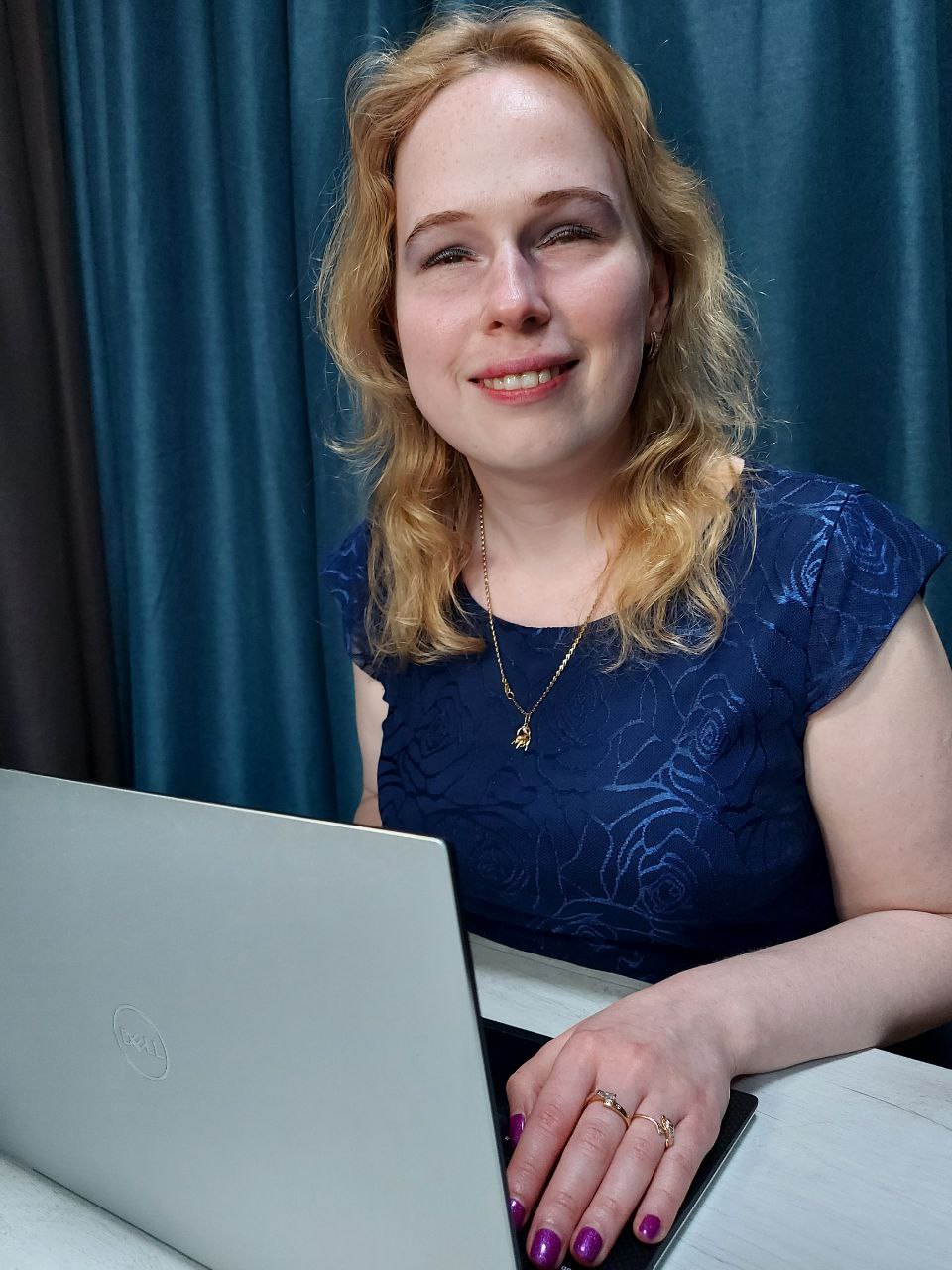Since the start of the Russian invasion, many Ukrainians have been forced to leave their country, including those who are blind, partially sighted or have lost their sight or part of it because of the war. During this period, many of EBU’s National Members have committed themselves to help visually impaired Ukrainians who have moved to their respective countries.

Leonida Ponomarova
Through contact with our German member DBSV, Leonida Ponomarova, a 31 year old blind woman from Kyiv, recently shared her testimonial with us, recalling how she decided to move to Germany with a friend of hers who is partially sighted. “Following her recommendation, we moved to München in August 2022. Previously, I had been told that the German government provides help and support for blind people”, she states. Although in the beginning both she and her friend lived in a small room in a hotel (which became a center for refugees from Ukraine), they managed to move to a bigger one six months after their arrival.
Nonetheless, Leonida has faced some challenges while trying to get used to life in Germany. “In October 2022, we registered ourselves to a German course for blind and partially sighted people, but its teacher wasn’t good enough and consequently, we didn’t get the chance to learn any reading or writing skills in German language”, she underlines.
As a result, they applied for another German course, although this time it was one open to everybody. Even so, they still faced many obstacles to get in. “Why can’t I apply to a course open for all? What about the inclusive process of Germany?”, she says. In spite of the organisers’ initial refusal to let them in, they finally got accepted in July of this year. Both her friend and she are much happier with the quality of this course compared to the other.
However, Leonida and her friend’s problems are still far from over. Currently, the job center responsible for dealing with their integration process in Germany is not willing to help them in finding a place to take their B1 German Exam once they finish the course. “We can’t take a test in our current school, as they don’t know how to organise exams for blind and partially sighted people”, Leonida states. “Right now, we’re contacting other centers who work with visually impaired people, but the reply is always the same: they cannot organise an exam for us because we’re not their students”, she adds.
While trying to learn German, she also worked to learn mobility skills in order to move independently in München. “Back in Kyiv, I moved with my white cane. After moving to Germany, I had to rely on my friend to go to places. Fortunately, in May of this year, I started mobility training lessons”, she recalls. As of now, Leonida can already visit the city’s shops and restaurants, as well as go out for a walk with her friends.
On a professional level, Leonida used to work in the Ukrainian administration before the start of the war. “I was a deputy for the region of Kyiv, working in its Social Protection Department in the development of spaces free of barriers for people with disabilities”, says Leonida. “Among my main responsibilities, I replied to voters and gave financial support to persons with disabilities”, she adds. Additionally, she was also in charge of other activities such as organising meetings or give training courses on standards for spaces without obstacles.
Among her other past commitments, she worked as a teacher of basic law and Ukrainian business language at the Kyiv College of Applied Sciences too. Furthermore, she also collaborated with the NGO “School of Equal Opportunities”, a Ukrainian organisation working in the area of gender equality. “There is a programme for women with disabilities, which aims to give them legal and psychological support”, Leonida explains. “I worked as a trainer there while also checking applications’ platforms and managing the organisation’s Facebook page”, she adds. Currently, she talks to the director of “School of Equal Opportunities” from time to time, but because of the war, coordination has become very difficult.
When speaking about the future, Leonida has reflected on her goals while also recalling her homeland. “I would like to find a job which would allow me to keep fighting for the rights of people with disabilities. However, I miss my country and I would like to go back some day”, she concludes.

